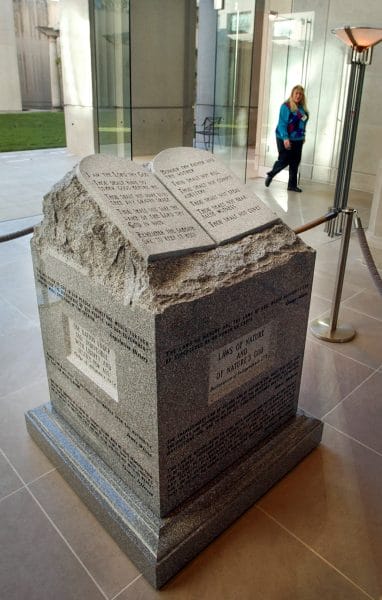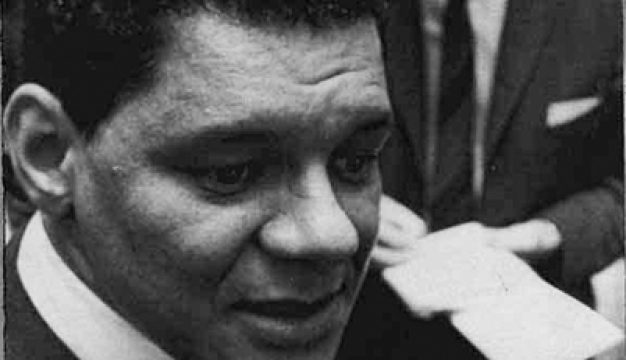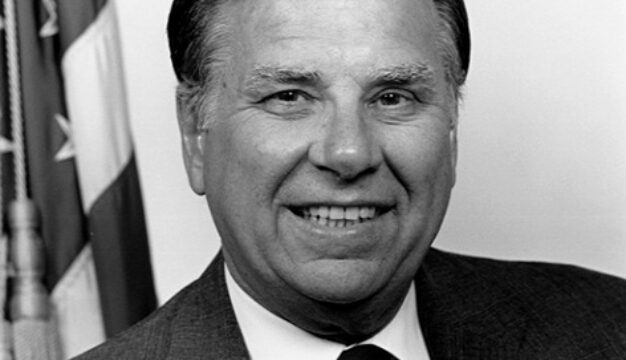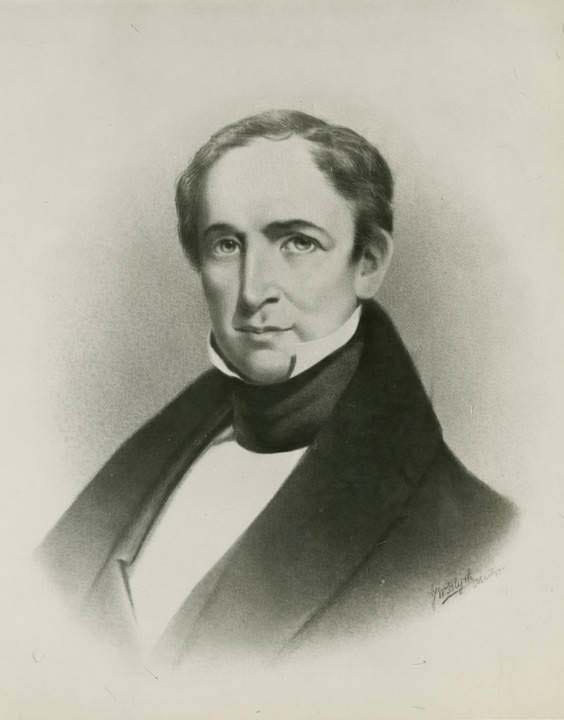Office of the Attorney General
Alabama’s attorney general is an elected official who is the chief lawyer and legal officer of the state of Alabama. The attorney general’s office is located in the state capital of Montgomery. The attorney general’s major responsibilities include defending the state in lawsuits, representing Alabama in court proceedings, and representing the state in habeas corpus, criminal, civil, and constitutional hearings. One Alabama attorney general, Jeff Sessions, would go on to serve as U.S. Attorney General.
The Office of the Attorney General operated as a territorial position before Alabama’s statehood in 1819. When the Mississippi Territory was created in 1807, the territory was divided into thirds, with each third being led by a specific attorney general. The yearly salary was $450. When Alabama gained statehood on December 14, 1819, the Office of the Attorney General was enshrined in the new state’s constitution, and was to be elected to a four-year term by both houses of the state legislature. The 1868 Constitution changed the office from being classified under the state’s judicial branch to being an executive officer position within the newly created executive department. It also specified that the attorney general, like other members of the executive department, would be chosen during general elections and for a two-year term. The 1875 Constitution clarified eligibility for the executive department, that only individuals who “shall have been a citizen of the United States at least seven years, and shall have resided in this state at least five years next preceding his election, and shall be at least twenty-five years old when elected.” The 1901 Constitution, the state’s current governing document, reverted the term of service to four years, beginning with the 1902 election. It prohibited office holders from succeeding themselves, like other members of the executive department. (This section, 116, was later amended in 1968 to allow for one additional successive term for members of the executive department.) It also created a board of pardons consisting of the attorney general, secretary of state, and state auditor to advise the governor, who had been given the power to grant paroles, on issues of clemency and parole. The office of assistant attorney general was created in 1911. In 1939, the Alabama Merit System made the personnel of the attorney general’s office subject to the rules of the State Personnel Board.
Henry Hitchcock was Alabama’s first attorney general, serving from 1819 to 1823. He had previously served as the secretary of the Alabama Territory. His legacy included publishing the first book printed in Alabama, entitled The Alabama Justice of the Peace, Containing All Duties, Powers and Authorities of That Office, in Cahaba, present-day Dallas County, in 1822. After his term ended, Hitchcock remained prominent in Alabama politics, serving as chief justice of Alabama’s Supreme Court from 1837 to 1839.
For most of Alabama’s first 100 years, the individuals who held the office of attorney general served just one four-year term. Some exceptions include Alexander B. Meek, who held the office for one year in 1836 after he finished the term of Peter Martin, who was appointed to a circuit court position. Marion Augustus Baldwin, a native of Georgia, served as attorney general from 1847-1865, the longest tenure so far. Baldwin was a secessionist, extremely popular, and remained in office after Alabama seceded from the United States. He died at the age of 52 while in office. He was succeeded by Georgia-born John W. A. Sanford Jr., who had an uncommon tenure, serving three non-consecutive terms: 1865-68, 1870-72, and 1875-78. In the twentieth century, when the state was mostly controlled by southern Democrats, many of the attorneys general served during times when the state grappled with corruption and civil rights issues and related resistance. Thomas E. Knight, who served from 1931-35, infamously represented Alabama in Powell v. Alabama (1932). One of the “Scottsboro Boys” legal cases, it found that the defendants were not afforded the constitutional right to effective counsel. Another Democratic attorney general, John M. Patterson, served from 1955 until 1959 when he took office as Alabama’s 44th governor. During his time as attorney general, Patterson became famous for challenging organized crime rackets in Phenix City, Russell County, after his father, Albert Patterson, was murdered for pledging to investigate crime syndicates there while running for attorney general in 1954. John Patterson also gained notoriety for his staunch opposition to civil rights legislation and desegregation. Patterson, along with other officials in the South, tried to stop the desegregation of public schools in the state after the 1954 Brown v. Board of Education decision. In 1956, he also successfully implemented a restraining order against the NAACP that barred the organization from operating in the state on the basis that it had failed to register as an out-of-state organization.
Patterson’s successor, MacDonald Gallion, was another influential attorney general who similarly opposed civil rights and school integration. During his first term in office from 1959-63, Gallion openly expressed opposition toward the leadership of the Congress of Racial Equality (CORE), and he spoke openly against desegregation while in office. He ran for governor of Alabama but lost the Democratic nomination to George Wallace. Four years later, he returned to the Office of the Attorney General, holding that position from 1967-71. Gallion continued to be a vocal opponent of school integration during his second term and worked alongside other attorney generals in the South to block it. In addition, he did not actively impede abuses of power made by law enforcement against civil rights demonstrators.
Between Gallion’s two terms, Richmond Flowers continued the trend of Alabama attorneys general participating in major legal cases. One such case, Lee v. Macon County Board of Education, began as a suit involving the integration of Tuskegee High School in 1963. Flowers represented the state in its unsuccessful defense in March 1967. The case was appealed to the Supreme Court in Wallace v. United States (1967), which ruled in favor of the lower court’s decision that segregation in public schools was unconstitutional and that there should be blanket desegregation in all schools in Alabama. Flowers ended up winning what are considered two landmark cases before the Supreme Court. The first was Baker v. Carr (1962), which allowed federal courts to hear Fourteenth Amendment cases related to redistricting state districts. The other case, Reynolds v. Sims (1964), ruled that state senate districts must have roughly equal populations. In addition to these cases, Flowers was involved in allowing women to serve on juries in Alabama for the first time, and he broke with other members of his party by standing in opposition to the Ku Klux Klan and prosecuting them and supporting desegregation. In 1968, Flowers was found guilty of federal charges related to conspiracy to extort life insurance companies seeking licensure in the state. He was paroled in 1973 and was pardoned in 1978 by Pres. Jimmy Carter after the federal law used to convict him was ruled unconstitutional and vague. Jeff Sessions, who served from 1995-97, defended Alabama law against litigation claiming disproportionate school funding, and he defended state law that defunded the Gay-Straight Alliances clubs at public universities and prevented their meeting in public spaces. Sessions served just two years, relinquishing the office after winning a U.S. Senate seat in 1996.
Since Sessions, the position has remained in Republican hands, either by election or through appointments by a Republican governor. Following Sessions’s election to the Senate, Gov. Forrest “Fob” James appointed William H. Pryor Jr. attorney general; he would win the office in 1998 and 2002. Pryor notably received national attention after he called for the removal of Alabama chief justice Roy Moore from office for refusing federal orders to remove a Ten Commandments monument he placed in the judicial building. Although Pryor personally agreed with the Ten Commandments being displayed, he prosecuted Moore for violating the law, which led to Moore’s removal from office. In 2004, Pryor was appointed judge of the Eleventh Circuit Court of Appeals by Pres. George W. Bush, and he later became chief justice of that court. Troy King was appointed to the position by Gov. Robert “Bob” Riley in 2004 and won the office in 2006, serving until 2011. He was known for his opposition to gambling and Indian gaming, but did not address electronic bingo. King also was known for bringing lawsuits against pharmaceutical companies for misrepresenting and inflating drug costs and advocating for monitoring sex offenders with electronic devices.
Luther Strange III took office as the state’s next attorney general in 2011. During his service, he expressed opposition to the Obergefell v. Hodges case legalizing same-sex marriage. Strange also worked with legal counsel from other Gulf Coast states in litigation following the Deepwater Horizon oil spill. He successfully argued the 2014 Lane v. Franks case before the U.S. Supreme Court providing protections to whistleblowers. In 2017, Gov. Robert Bentley appointed Strange to fill the empty U.S. Senate seat following Pres. Donald Trump’s nomination and the appointment of then-Senator Jeff Sessions as U.S. Attorney General. Steve Marshall was then appointed attorney general by Governor Bentley in 2017. He won the office outright in 2018 and was reelected in 2022. A Democrat until 2011, some of Marshall’s most notable actions as attorney general have been associated with joining other Republican attorneys general in trying to abolish the Deferred Action for Childhood Arrivals (DACA) program. Marshall also filed a lawsuit that aimed to throw out the election results of four states that voted for Joe Biden in the 2020 election. The lawsuit was quickly dismissed for lack of evidence by the U.S. Supreme Court. He is also known for combating opioid addiction, and for his conservative stances, including the protection of Confederate monuments. In 2023, Marshall discussed using conspiracy laws to punish women who crossed state lines seeking abortions, but the Department of Justice (DOJ) said such laws were unconstitutional. Also that year, Marshall joined 24 other attorney generals in a lawsuit against DOJ and the Bureau of Alcohol, Tobacco, Firearms and Explosives in opposition to new gun regulations.
As of 2024, the Office of the Attorney General employs approximately 150 individuals who assist the attorney general in providing legal services and representation for the state and its agencies. The agency consists of 14 divisions overseen by the executive division. The department’s executive staff includes: the attorney general, the chief deputy attorney general, chief counsel, director of legislative affairs, solicitor general, law enforcement coordinator, public relations office, constituent services, and professional administrative staff for the attorney general.
Further Reading
- Garrow, David, ed. Birmingham, Alabama, 1956-1963: The Black Struggle for Civil Rights. United States: Carlson Pub., 1989.
- Reports of Cases at Law and in Equity, Argued and Determined in the Supreme Court of Alabama. Montgomery, A.L.: West Publishing Company, 1866.
- Rogers, William Warren, Robert David Ward, Leah Rawls Atkins, and Wayne Flynt, eds. Alabama: The History of a Deep South State. Tuscaloosa: University of Alabama Press, 2018.






















